
Grand entretien with Antoine Compagnon : « If you don’t innovate, you die »
CEFRES and the French Institute in Prague invited Antoine Compagnon to give a “Grand Entretien” on the occasion of his participation in the conference „Proustian perspectives“ organized by the Departement of Czech and Comparative Literature and the Department of Romance studies of the Faculty of Arts, Charles University (ÚČLK & ÚRS FF UK) in partnership with CEFRES.
Where: French Institute in Prague
When: Wednesday, March 22nd 2023, 6pm
Language: Czech and French (simultaneous interpretation)
Contact : cefres[@]cefres.cz
Antoine Compagnon (Collège de France / Académie française)
Modération: Eva Voldřichová-Beránková (UK)
Continue reading “Grand entretien” with Antoine Compagnon. “If you don’t innovate, you die” →
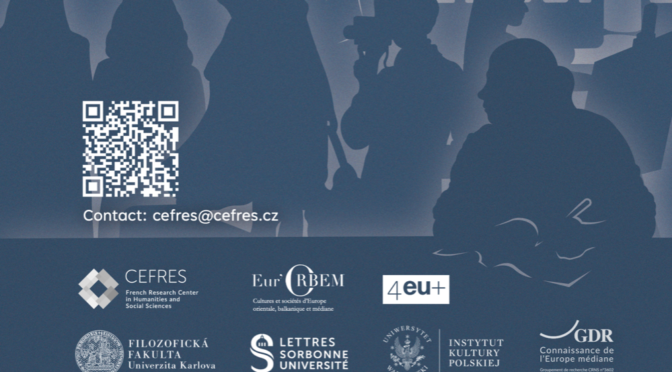
Displacements: Women’s Transnational Trajectories & Artistic Experiences of Emancipation in Central Europe
International conference
Convenors: Mateusz Chmurski, Clara Royer, Lola Sinoimeri
Time and Place: March 16-17, 2023 – CEFRES and online
https://us02web.zoom.us/j/85661902411?pwd=M3FUZmR0OUhIUWF0ZDFYVzBKa2QvZz09
Meeting ID: 856 6190 2411
Passcode: 456173
Languages of the conference: French & English
Scientific Committee:
Anna Borgos (Hungarian Academy of Sciences and Humanities), Libuše Heczková (Univerzita Karlova), Luba Jurgenson (Sorbonne Université), Iwona Kurz (Uniwersytet Warszawski), Jasmina Lukić (Central European University), Markéta Theinhardt (Sorbonne Université)
Partners: EUR’ORBEM (CNRS-Sorbonne University), CEFRES (CNRS-MEAE), Departement of Czech and comparative literature, Charles University (ÚČLK FF UK), Institute of Polish Culture, Warsaw university (IKP WP UW) – with the support of the European University Alliance 4EU+, the GDR “Connaissance de l’Europe médiane” (CNRS) and the French Institute in Prague
Read the thesis of the conference here.
Continue reading Displacements: Women’s Transnational Trajectories & Artistic Experiences of Emancipation in Central Europe →
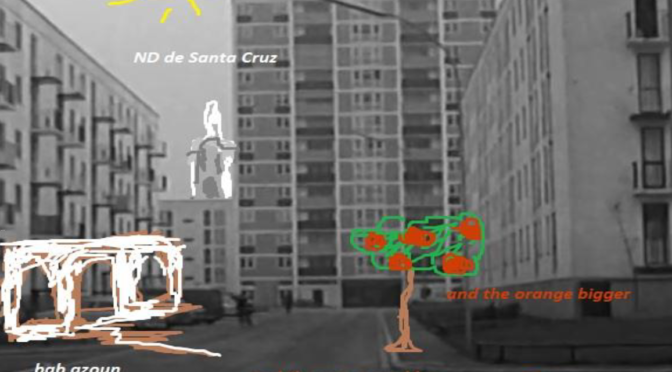
“We never talked about you, but you were always there, Algeria.” Exiles and exiled memories of vanished worlds
6th session of CEFRES in-house seminar 2022-2023.
Through the presentation of works in progress, CEFRES’s Seminar aims at raising and discussing issues about methods, approaches or concepts, in a multidisciplinary spirit, allowing everyone to confront her or his own perspectives with the research presented.
Location: CEFRES Library and online
Date: 14th of March
Language: English
Contact: cefres[@]cefres.cz
Michèle Baussant (CNRS, CEFRES/ Institut Convergences Migrations)
Discussant: Emina Zoletić (CEFRES / University of Warsaw)
Continue reading Exiles and exiled memories of vanished worlds →
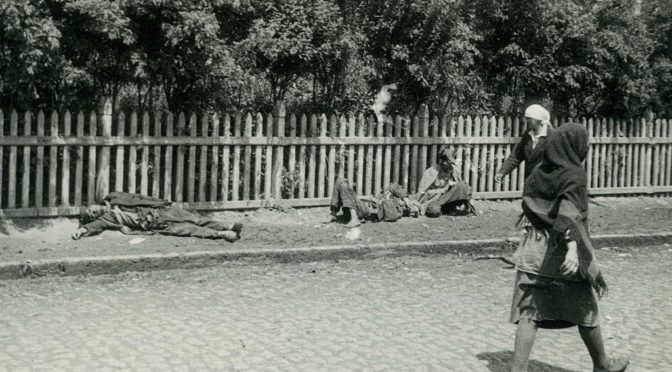
Politics of Hunger. Holodomor and Beyond. NaNo seminar #5
The fifth session of the seminar “Nature(s) & Norms” (NANO), carried out within the framework of the research program SAMSON (Sciences, Arts, Medicine and Social Norms), developed by Sorbonne University (Paris), the Faculty of Arts of the Charles University (Prague), Warsaw University and CEFRES welcomes three participants: Luba Jurgenson (CNRS / Sorbonne), Stanislav Tumis (Department of East European Studies, Faculty of Arts, Charles University), and Libuše Heczková as discussant.
Location: CEFRES Library and online (zoom)
To receive the link, please contact us at cefres[@]cefres.cz
Date: Friday, February 24th 2023, 4.30 pm
Language: English
Part 1
Luba Jurgenson, Eur’ORBEM (CNRS / Sorbonne)
A culture of norms: Biopower in the service of terror
Abstract: This presentation aims to interrogate the norms developed by the Soviet state, particularly during the Stalinist period, to regulate the relationship between the product of citizens’ labor and the food they are allowed to consume. It aims to seize in particular the situation of populations considered as wrongdoers or criminals, namely peasants who oppose (or are supposed to oppose) collectivization and Gulag inmates. Hunger is a political weapon and a means of separating legitimate bodies (workers, defenders of the fatherland) from illegitimate bodies (those of “enemies”, “saboteurs”, “parasites” and other individuals who do not deserve to eat), the “healthy” body of society from its “sick” body;
Continue reading Politics of Hunger. NaNo seminar #5 →
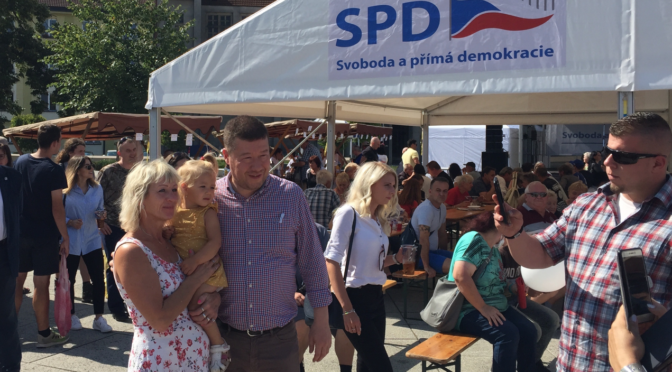
“We defend the normal world!”: The Men and Women of the Polish and Czech Parliamentary Far Right
1st session of CEFRES in-house seminar
Through the presentation of works in progress, CEFRES’s Seminar aims at raising and discussing issues about methods, approaches or concepts, in a multidisciplinary spirit, allowing everyone to confront her or his own perspectives with the research presented. Continue reading The Men and Women of the Polish and Czech Parliamentary Far Right →
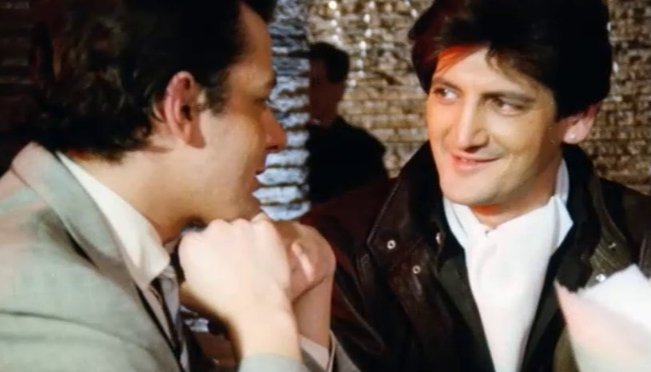
The fourth session of the seminar “Nature(s) & Norms” (NANO), carried out within the framework of the research program SAMSON (Sciences, Arts, Medicine and Social Norms), developed by Sorbonne University (Paris), the Faculty of Arts of the Charles University (Prague), Warsaw University and CEFRES welcomes two participants: Mathieu Lericq (ESTCA, University of Paris 8 Vincennes Saint-Denis) and Magda Szcześniak (Institute of Polish Culture, University of Warsaw)
Location: Paris, CEFRES Library and online:
https://us02web.zoom.us/j/86161270934?pwd=UUp6Y1g3V2pkWWp4SVNJWEo3WndOdz09
Meeting ID: 861 6127 0934
Passcode: 695781
Date: Friday, January 27th 2023, 4.30 pm
Language: English
Part 1
“Genealogy of a Taboo: Homosexuality and AIDS within Amateur and Educational Films Produced in Communist Poland”
Mathieu Lericq, ESTCA, University of Paris 8 Vincennes Saint-Denis
Continue reading Body and Sexuality. NaNo Seminar #4 →






